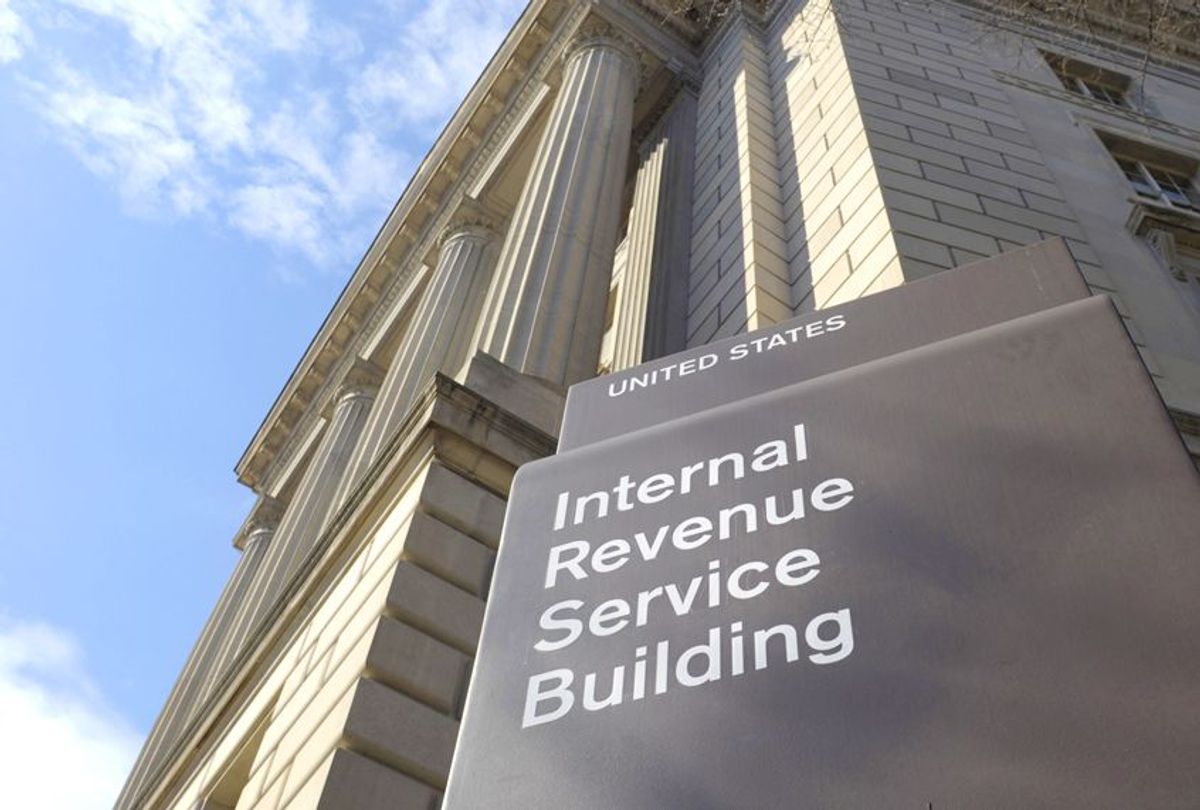Monday was the first day on the job for David Kautter, the former big-shot corporate accountant that the White House has installed as the interim head of the Internal Revenue Service. As he was previously serving as Assistant Secretary of the Treasury, Kautter's temporary position means that he will not be subjected to a Senate confirmation hearing to examine his record.
Under federal law, the president is given unilateral power to make temporary appointments to various federal agencies in the event that a formal nominee has not been found. The interim appointments can last up to 120 to 190 days.
Kautter's elevation to the top IRS post is significant for several reasons, the most prominent of which is that he is the first agency leader not to have come from within the ranks since at least 1955, according to the progressive group Demand Progress.
"From demanding the Department of Justice investigate his political opponents to urging the Federal Communications Commission to revoke broadcast licenses for media outlets critical of his presidency, Trump has worked to exert control over independent government bodies in unprecedented ways," said Kurt Walters, a campaign director with the group's Rootstrikers project.
"Trump has created an inescapable conflict between Kautter’s role driving politically motivated tax reform at the Treasury Department and his new duty to impartially enforce the law at the IRS."
While he has no IRS experience, Kautter is intimately familiar with the tax code, having run the tax compliance department of EY, the accounting giant formerly known as Ernst and Young. Kautter directed the firm's efforts for ten years, beginning in 2000. During his time there, he and his subordinates worked to figure out a series of complex ways to restructure extremely wealthy clients' incomes so as to avoid up to $2 billion in taxes.
The IRS eventually figured out what was going on and launched a lawsuit against the firm. Two partners pleaded guilty to obstructing justice. Kautter was not a named party to the case.
Being able to determine who will head up the IRS is likely to be of particular significance to President Donald Trump considering that, by his own admission, he and his companies are currently under audit by the agency and have been for many years. Trump has cited the IRS' dispute with him as justification for refusing to release his personal income tax records — even though tax experts have said that publicly disclosing them would create no legal liability for him.
Another person who is highly likely to be interested in who becomes the IRS commissioner is Trump's most significant financial backer, former hedge fund operator Robert Mercer. Although he and his family strongly supported the presidential candidacy of Trump's former rival Ted Cruz, they abruptly switched sides once it became evident that the Texas senator was doomed to lose the Republican nomination in 2016.
Mercer is the former co-CEO of Renaissance Technologies, a $50 billion private fund which earns most of its money from high-speed trading powered by mathematical formulae. During his time leading the company, Renaissance was sued by the IRS over claims that it had failed to pay at least $7 billion in taxes.
Both Trump and Mercer are among several administration figures who were named in the recent "Paradise Papers" leak consisting of stolen documents from a Bermudan law firm which illustrate how the uber-wealthy around the world utilize tax shelters and offshore investments to legally avoid paying trillions of dollars in taxes.



Shares